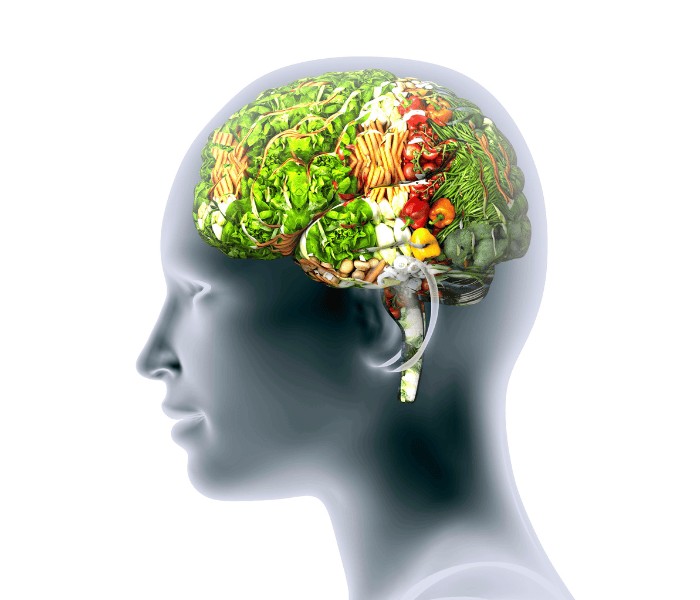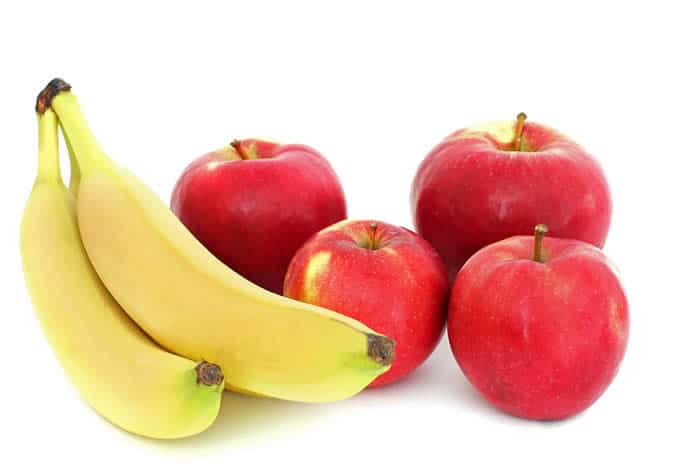

When we’re under a lot of stress, it’s hard to be our best. Stress can affect us mentally, showing up in the form of anxiety or depression. It can impact us physically as well, sometimes leading to chest pains, headaches, high blood pressure, digestive issues, and weakened immunity. (1)
Finding ways to resolve the source of your stress is key to eliminating it from your life, or at least reducing its effects. But recent research has also found that eating certain foods may help reduce the tension you feel. Learn why, as well as which foods are good for stress relief.
The Connection Between Diet and Stress
It’s not uncommon to want to eat when you feel stressed. For some, eating is a way to distract themselves from the tension or angst they feel. But there’s a biological reason too. When your body is under stress, it increases the release of the stress hormone cortisol.
Cortisol is responsible for your “fight-or-flight” response and once this response is initiated, your brain wants to make sure your body has enough fuel to respond effectively. Although this is good from a survival standpoint, it’s not so good from a health standpoint because cortisol often causes you to crave foods that aren’t exactly healthy—mainly those high in sugar, salt, and fat. (2)
To be clear, not everyone eats more when under stress. Some actually eat less. For instance, you may no longer have an appetite when in stressful situations. Or you might avoid food because eating makes you feel nauseous or ill.
Research on the Psychobiotic Diet
Research also suggests that connection goes the other way as well. Not only does stress impact our diet, but our diet can also impact our feelings of stress.
In this 2022 study, individuals with poor dietary habits reported a 32% reduction in the amount of stress they felt after following a psychobiotic diet for four weeks, compared to only a 17% reduction in individuals not following this same type of eating plan. (3) And the more the subjects adhered to the diet, the greater their level of stress reduction.
It’s thought that the psychobiotic diet helped reduce stress by positively affecting gut-brain communication.

In simple terms, this means that the food consumed caused the gut to send signals to the brain that reduced feelings of stress.
Foods for Stress Relief
So, what foods reduce stress and anxiety? A psychobiotic diet is high in fiber and prebiotic foods, which also tend to be higher in vitamins, minerals, and other healthy nutrients.

This diet involves consuming primarily:
- Whole grains – i.e., oats, barley, and quinoa
- Prebiotic fruits – i.e., apples, bananas, and berries
- Prebiotic vegetables – i.e., onions, leeks, and cabbage
- Fermented foods – i.e., sauerkraut, kefir, and Kombucha
- Legumes – i.e., beans, chickpeas, and peanuts
Incorporating foods from each category into your diet may help you feel less stress and anxiety. You might eat oatmeal with apple chunks for breakfast, for instance, and a salad with chickpeas and onions at lunch. Both of these meals would fit into a psychobiotic eating plan.
Stress Foods to Avoid
Just as it’s important to know what foods you can eat to reduce stress, it’s equally essential to know which ones to avoid due to their ability to increase the amount of stress you feel.
The psychobiotic diet in the study was low in processed foods and discouraged the consumption of fast food and sugary drinks.
Additional foods that cause stress and anxiety to increase include: (4)

- Refined carbs – white bread and pasta
- Foods with added sugars – cookies, cakes, and other desserts
- Those that contain caffeine – coffee, tea, and chocolate
Diet Is Only Part of the Solution
Eating more foods that can reduce stress and avoiding ones that can increase it is a good first step. But diet is only one way to resolve the stress you feel. There are several ways to manage stress, such as going for a walk and talking to a mental health counselor, giving you many different options when trying to control the stress that you are experiencing.
It might also help to take a dietary supplement. Natural Wellness offers many supplements designed to help reduce stress and fatigue, giving you just one more tool to help you cope with the stressors in your life.




